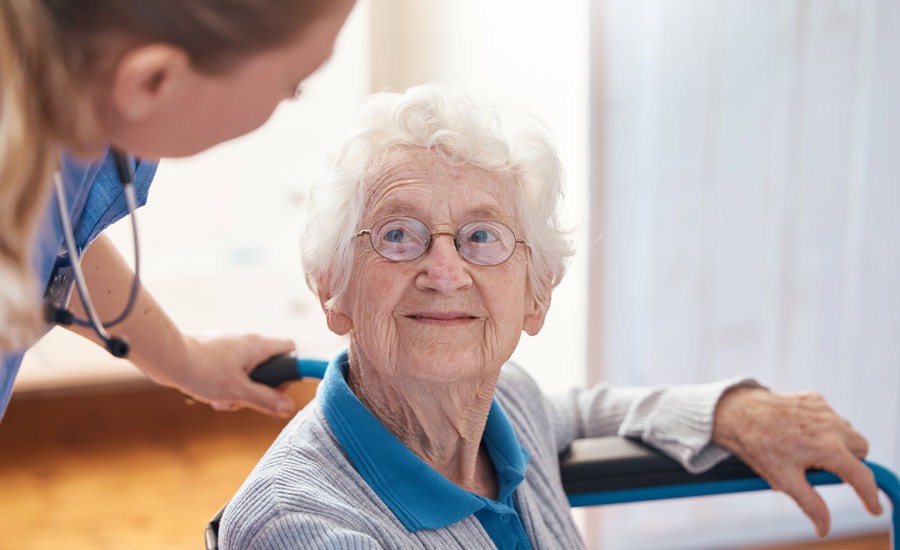Who’s Looking After Your Loved One’s Health in a Care Home?

When a loved one moves into a home, it’s not always clear who takes responsibility for their medical care. And families want to know who monitors their health, manages medication and steps in if something changes.
This article explains how medical care is handled in a care home and who’s involved in making sure your relative’s health needs are met at all times.
Who is Responsible for Medical Care in a Care Home?
Healthcare in homes is a shared responsibility between care staff, GPs and community healthcare professionals. Care staff manage day-to-day health needs, including giving medication, monitoring changes and raising concerns. A GP linked to the home oversees medical treatment, handles prescriptions and makes clinical decisions when needed.
Other professionals, such as district nurses or physiotherapists, get involved if extra support is needed, for example, with wound care, mobility or managing long-term conditions.
The Role of Care Staff in Managing Health
It’s the home’s care staff who are often the first to notice when something changes because they see residents regularly, supporting them with everyday tasks and getting to know what’s normal for each person. It’s that day-to-day contact that puts them in a good position to pick up on any early signs that something might not be right.
Their responsibilities include administering prescribed medication, assisting with mobility and monitoring changes in health or behaviour. If something needs attention, they pass it on to the nurse, GP or whoever else needs to be involved for the best healthcare. Maintaining clear records ensures that health professionals and families always have up-to-date information.
Care staff don’t make medical decisions, but they play an important part in ensuring concerns are noticed and followed up. Without that early awareness, the rest of the team can’t work as well.
Who Makes the Clinical Decisions?
Most care homes work closely with a local GP who takes on responsibility for residents’ medical care. In many cases, residents are registered with the GP associated with the home, which enables more consistent contact and follow-up. The doctor handles matters such as managing prescriptions, overseeing long-term conditions, making referrals and responding to changes in health.
If someone becomes unwell, it’s usually the doctor who makes the clinical decisions about what to do next. They may visit in person, speak to staff by phone or arrange further care. In some cases, other clinicians are involved, including nurse practitioners or out-of-hours doctors, when a decision regarding a resident’s condition can’t wait.
Care home staff support this process by sharing updates and observations with the rest of the team. Qualified professionals make medical decisions, but, as mentioned previously, they rely on timely and accurate information from the care team to do so effectively.
When More Support Is Needed
Some residents have health needs that require input from professionals outside the care home team, including district nurses, physiotherapists, dieticians, podiatrists, mental health therapists or palliative care teams, depending on the resident’s situation.
A district nurse might visit to manage a wound, give injections or monitor ongoing treatment. A physiotherapist helps with strength and balance, especially for residents in convalescent care after a hospital stay. Occupational therapists sometimes assess how someone moves around their space and suggest practical changes to reduce risk or discomfort.
These professionals are usually part of the local NHS community services. They don’t work for the care home, but they visit when needed and liaise with the care staff to make sure the proper support is in place, with the GP making the referral – although some services can be arranged directly.
Medication, Monitoring and Records
Care homes use structured systems to manage health and medication safely. Here’s how it works in practice:
- Medication is prescribed by the GP and usually delivered by a local pharmacy.
- Care staff are trained to give medication correctly and record each dose at the time it’s given.
- Any side effects or missed doses are documented and flagged to the appropriate healthcare professional.
- Day-to-day health is monitored through observation, and any changes in appetite, mobility, sleep or mood are noted and communicated to a member of the upper-level healthcare team.
- Each resident has a personalised care plan that includes medical history, current health needs, medication and support details.
- Care plans are reviewed regularly and updated whenever there is a change.
- Daily notes are kept by staff so that visiting professionals, such as GPs or nurses, have accurate information to work with.
- Families are encouraged to be involved in their loved one’s care and can request to see care plans or speak to staff about any updates or concerns.
What This Means for You and Your Family
Healthcare in a care home is managed by a combination of care staff, GPs and visiting professionals such as nurses and therapists. Care staff provide daily support, administer medication and monitor changes. Doctors oversee medical treatment, manage prescriptions and respond to concerns and, when needed, community teams provide specialist input for more complex health issues.
Each part of this system depends on accurate communication and clear responsibilities. If you’re unsure about how your relative’s care is being managed, like who their GP is, how often they’re seen or what to expect if their condition changes, it’s reasonable to ask. Understanding how things work makes it easier to stay involved and feel confident about the care your family member is receiving.
Ready to explore...
